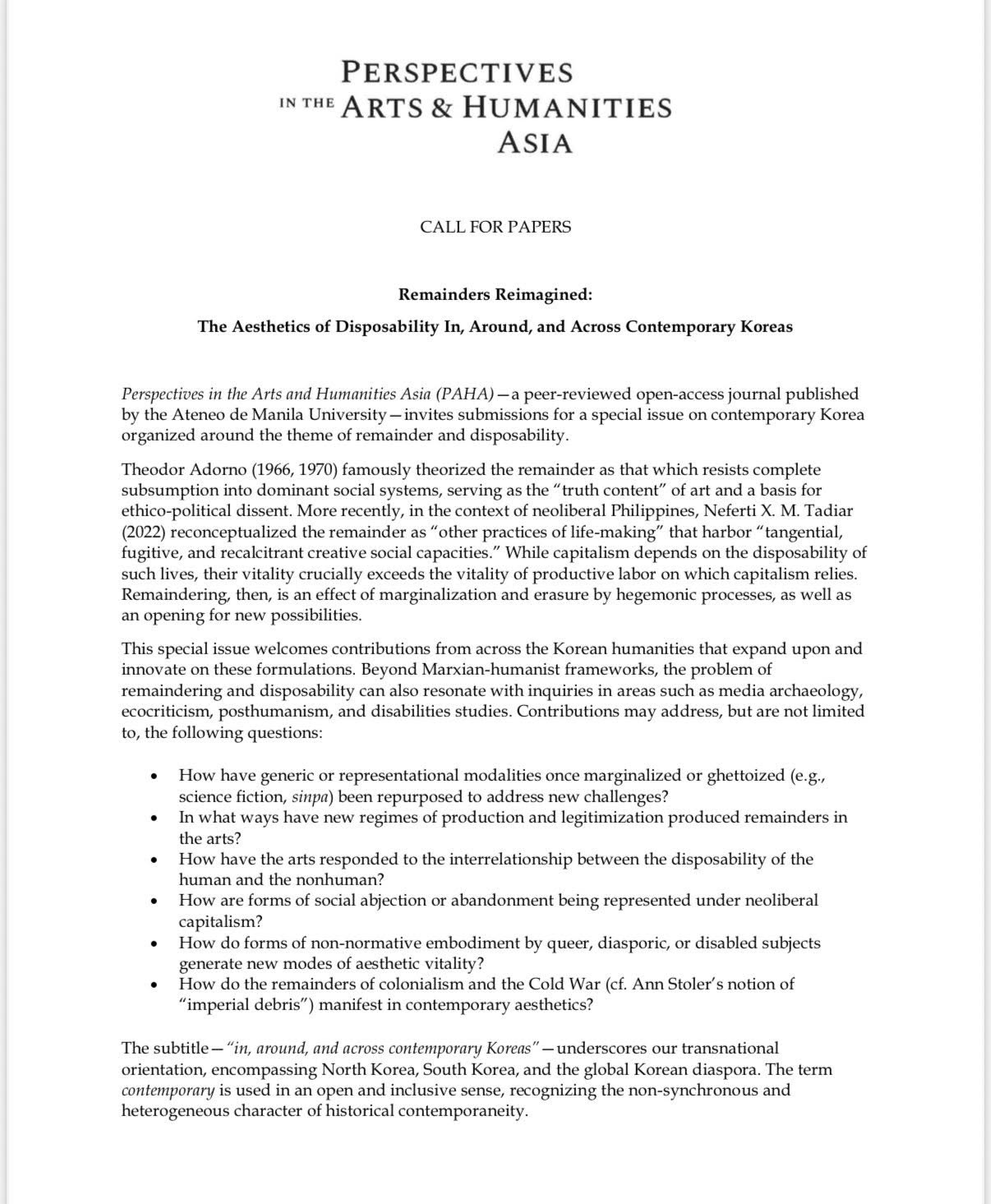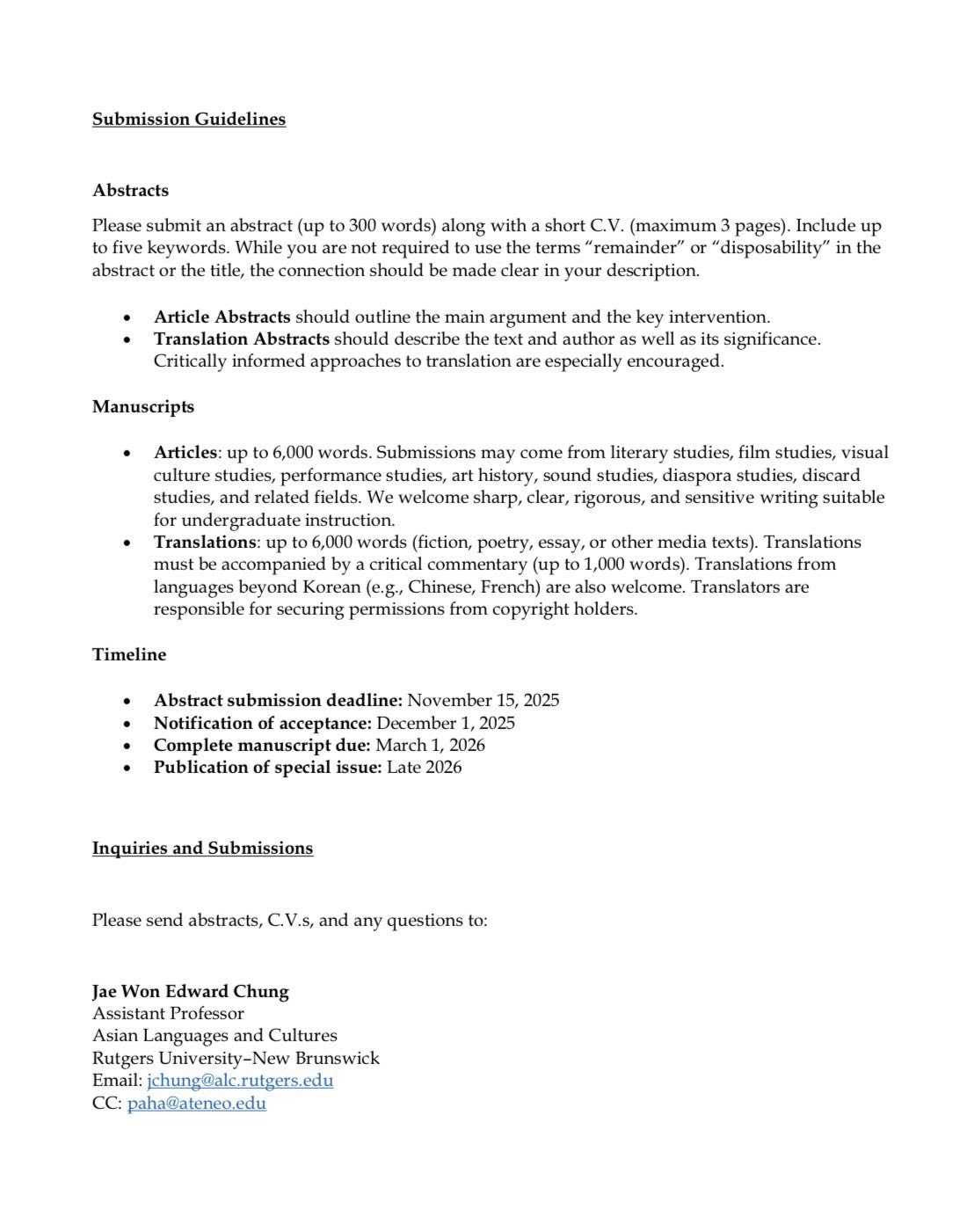time zone will be applied.
Report this post?


CALL FOR PAPERS (Articles & Translations)
Remainders Reimagined: The Aesthetics of Disposability In, Around, and Across Contemporary Koreas
Perspectives in the Arts and Humanities Asia (PAHA)—a peer-reviewed open-access journal published by the Ateneo de Manila University—invites submissions for a special issue on contemporary Korea organized around the theme of remainder and disposability.
Theodor Adorno (1966, 1970) famously theorized the remainder as that which resists complete subsumption into dominant social systems, serving as the “truth content” of art and a basis for ethico-political dissent. More recently, in the context of neoliberal Philippines, Neferti X. M. Tadiar (2022) reconceptualized the remainder as “other practices of life-making” that harbor “tangential, fugitive, and recalcitrant creative social capacities.” While capitalism depends on the disposability of such lives, their vitality crucially exceeds the vitality of productive labor on which capitalism relies. Remaindering, then, is an effect of marginalization and erasure by hegemonic processes, as well as an opening for new possibilities.
This special issue welcomes contributions from across the Korean humanities that expand upon and innovate on these formulations. Beyond Marxian-humanist frameworks, the problem of remaindering and disposability can also resonate with inquiries in areas such as media archaeology, ecocriticism, posthumanism, and disabilities studies. Contributions may address, but are not limited to, the following questions:
The subtitle—“in, around, and across contemporary Koreas”—underscores our transnational orientation, encompassing North Korea, South Korea, and the global Korean diaspora. The term contemporary is used in an open and inclusive sense, recognizing the non-synchronous and heterogeneous character of historical contemporaneity.
Submission Guidelines
Abstracts
Please submit an abstract (up to 300 words) along with a short C.V. (maximum 3 pages). Include up to five keywords. While you are not required to use the terms “remainder” or “disposability” in the abstract or the title, the connection should be made clear in your description.
Manuscripts
Timeline
Inquiries and Submissions
Please send abstracts, C.V.s, and any questions to:
Jae Won Edward Chung
Assistant Professor
Asian Languages and Cultures
Rutgers University–New Brunswick
Email: jchung@alc.rutgers.edu
CC: paha@ateneo.edu